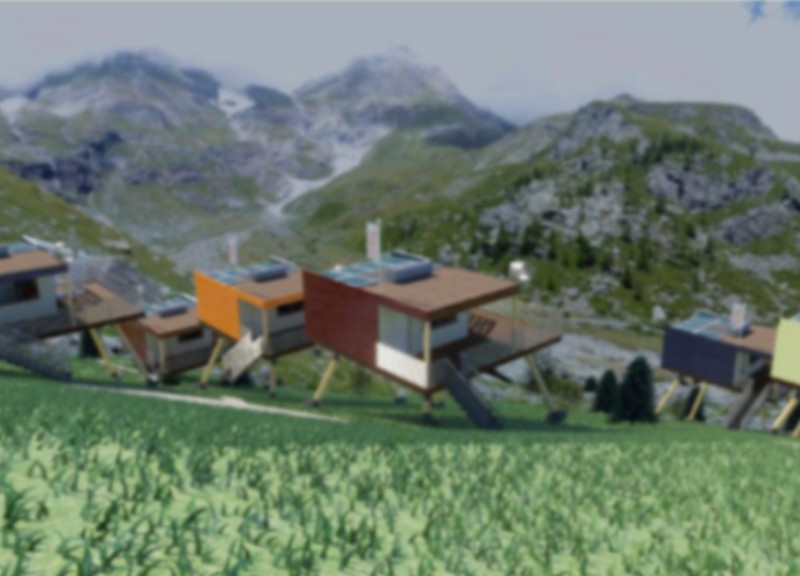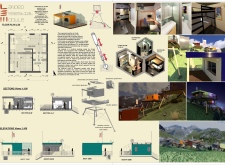5 key facts about this project
The Essential Module is designed as a compact living unit that includes essential spaces: a living room, bedroom, bathroom, and storage area. Each element is carefully planned to maximize utility while preserving personal privacy. The living room features large windows that contribute to natural ventilation and daylight access. The bedroom is oriented to provide a tranquil atmosphere. The efficient bathroom design incorporates water-saving fixtures, and the storage area enhances spatial organization.
Sustainability is a primary focus. The project utilizes photovoltaic panels for energy generation, thermic panels to enhance energy efficiency, and a wooden platform to minimize the ecological footprint. The integration of a hydroponic greenhouse supports food production, benefiting the inhabitants while providing aesthetic greenery. Structural components, such as steel columns and suspension cables, ensure stability on diverse terrains, contributing to the project’s unique adaptability.
The Essential Module stands apart from traditional housing designs through its emphasis on modularity and prefabrication, allowing for rapid assembly and logistical efficiency. The implementation of a wind turbine generator further enhances its sustainability, while an adaptive water management system ensures effective drainage and minimizes environmental impact. The design promotes community living by enabling clusters of modules that foster social interaction among residents.
The project reflects a proactive response to the increasing demand for sustainable living solutions. By employing a variety of architectural strategies, it effectively addresses contemporary challenges in housing while offering a replicable model for future developments.
For those interested in more detailed insights, further exploration of the architectural plans, architectural sections, and architectural ideas that shape the Essential Module is encouraged. Engage with the project presentation to fully appreciate its design and innovative approaches.























